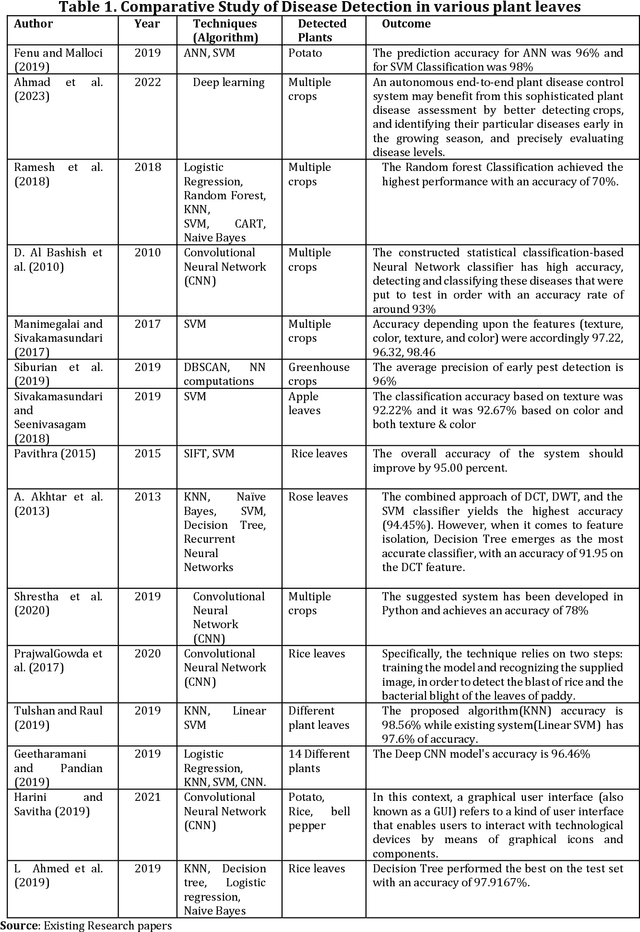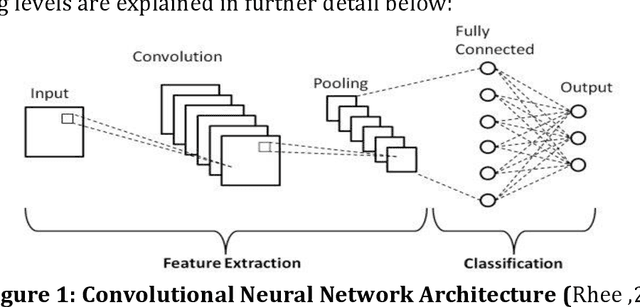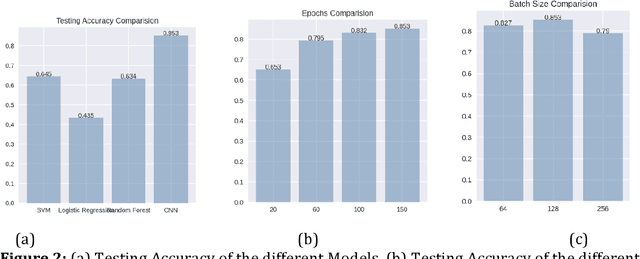Md. Jalal Uddin Chowdhury
Empowering Agricultural Insights: RiceLeafBD -- A Novel Dataset and Optimal Model Selection for Rice Leaf Disease Diagnosis through Transfer Learning Technique
Jan 15, 2025



Abstract:The number of people living in this agricultural nation of ours, which is surrounded by lush greenery, is growing on a daily basis. As a result of this, the level of arable land is decreasing, as well as residential houses and industrial factories. The food crisis is becoming the main threat for us in the upcoming days. Because on the one hand, the population is increasing, and on the other hand, the amount of food crop production is decreasing due to the attack of diseases. Rice is one of the most significant cultivated crops since it provides food for more than half of the world's population. Bangladesh is dependent on rice (Oryza sativa) as a vital crop for its agriculture, but it faces a significant problem as a result of the ongoing decline in rice yield brought on by common diseases. Early disease detection is the main difficulty in rice crop cultivation. In this paper, we proposed our own dataset, which was collected from the Bangladesh field, and also applied deep learning and transfer learning models for the evaluation of the datasets. We elaborately explain our dataset and also give direction for further research work to serve society using this dataset. We applied a light CNN model and pre-trained InceptionNet-V2, EfficientNet-V2, and MobileNet-V2 models, which achieved 91.5% performance for the EfficientNet-V2 model of this work. The results obtained assaulted other models and even exceeded approaches that are considered to be part of the state of the art. It has been demonstrated by this study that it is possible to precisely and effectively identify diseases that affect rice leaves using this unbiased datasets. After analysis of the performance of different models, the proposed datasets are significant for the society for research work to provide solutions for decreasing rice leaf disease.
Plant Leaf Disease Detection and Classification Using Deep Learning: A Review and A Proposed System on Bangladesh's Perspective
Jan 06, 2025



Abstract:A very crucial part of Bangladeshi people's employment, GDP contribution, and mainly livelihood is agriculture. It plays a vital role in decreasing poverty and ensuring food security. Plant diseases are a serious stumbling block in agricultural production in Bangladesh. At times, humans can't detect the disease from an infected leaf with the naked eye. Using inorganic chemicals or pesticides in plants when it's too late leads in vain most of the time, deposing all the previous labor. The deep-learning technique of leaf-based image classification, which has shown impressive results, can make the work of recognizing and classifying all diseases trouble-less and more precise. In this paper, we've mainly proposed a better model for the detection of leaf diseases. Our proposed paper includes the collection of data on three different kinds of crops: bell peppers, tomatoes, and potatoes. For training and testing the proposed CNN model, the plant leaf disease dataset collected from Kaggle is used, which has 17,430 images. The images are labeled with 14 separate classes of damage. The developed CNN model performs efficiently and could successfully detect and classify the tested diseases. The proposed CNN model may have great potency in crop disease management.
A Novel Ensemble-Based Deep Learning Model with Explainable AI for Accurate Kidney Disease Diagnosis
Dec 12, 2024Abstract:Chronic Kidney Disease (CKD) represents a significant global health challenge, characterized by the progressive decline in renal function, leading to the accumulation of waste products and disruptions in fluid balance within the body. Given its pervasive impact on public health, there is a pressing need for effective diagnostic tools to enable timely intervention. Our study delves into the application of cutting-edge transfer learning models for the early detection of CKD. Leveraging a comprehensive and publicly available dataset, we meticulously evaluate the performance of several state-of-the-art models, including EfficientNetV2, InceptionNetV2, MobileNetV2, and the Vision Transformer (ViT) technique. Remarkably, our analysis demonstrates superior accuracy rates, surpassing the 90% threshold with MobileNetV2 and achieving 91.5% accuracy with ViT. Moreover, to enhance predictive capabilities further, we integrate these individual methodologies through ensemble modeling, resulting in our ensemble model exhibiting a remarkable 96% accuracy in the early detection of CKD. This significant advancement holds immense promise for improving clinical outcomes and underscores the critical role of machine learning in addressing complex medical challenges.
A review-based study on different Text-to-Speech technologies
Dec 17, 2023Abstract:This research paper presents a comprehensive review-based study on various Text-to-Speech (TTS) technologies. TTS technology is an important aspect of human-computer interaction, enabling machines to convert written text into audible speech. The paper examines the different TTS technologies available, including concatenative TTS, formant synthesis TTS, and statistical parametric TTS. The study focuses on comparing the advantages and limitations of these technologies in terms of their naturalness of voice, the level of complexity of the system, and their suitability for different applications. In addition, the paper explores the latest advancements in TTS technology, including neural TTS and hybrid TTS. The findings of this research will provide valuable insights for researchers, developers, and users who want to understand the different TTS technologies and their suitability for specific applications.
 Add to Chrome
Add to Chrome Add to Firefox
Add to Firefox Add to Edge
Add to Edge